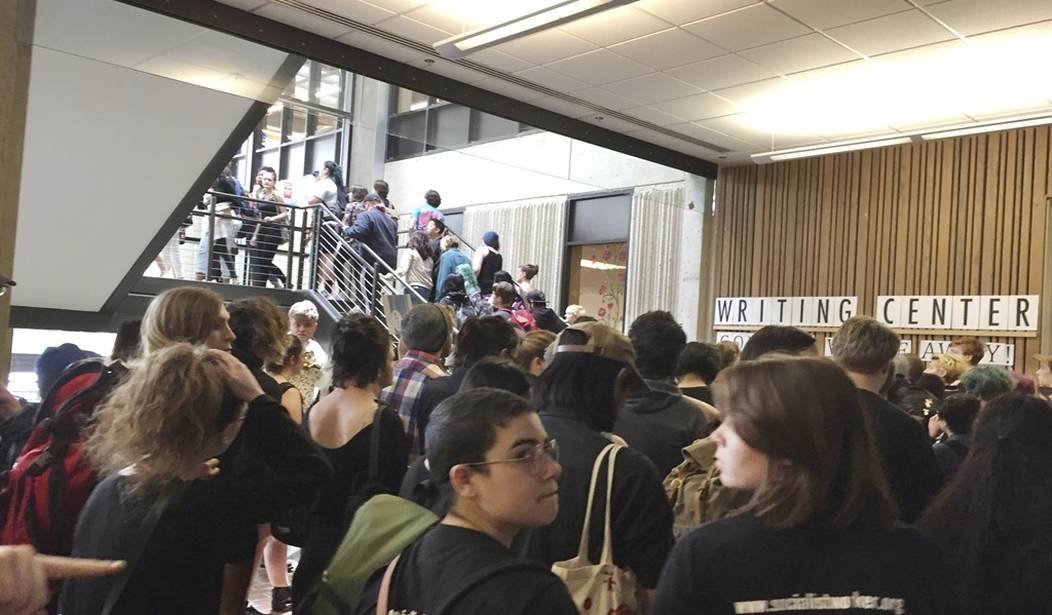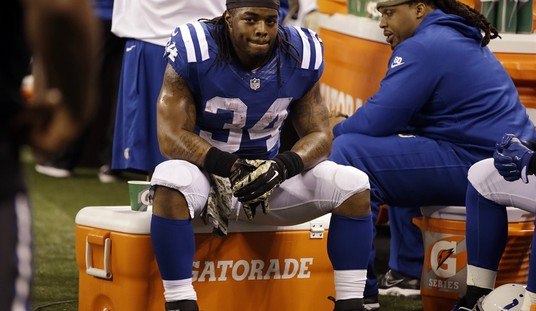Thursday the Wall Street Journal published a story based on a review of hundreds of pages of internal emails from Evergreen State College. What the paper found was more evidence that students, supported by certain members of the faculty, seemed eager to label anyone who disagreed with them racist:
Consider a February exchange, in which Mr. Weinstein—a progressive who is skeptical of identity politics—faulted what he called Evergreen administrators’ “reckless, top-down reorganization around new structures and principles.”
Within minutes, a student named Mike Penhallegon fired back an email denouncing Mr. Weinstein and his “racist colleagues.”…
Media professor Naima Lowe urged one of Mr. Weinstein’s defenders to read about how calls for civility are “often used to silence and/or dismiss concerns about racism.” She also said that the “white people making changes in their white supremacist attitudes and behaviors” were those “who do not immediately balk and become defensive,” instead acknowledging that “white supremacy is literally ingrained in everything.” In other words, merely defending oneself against the accusation of “white supremacy” is evidence of guilt.
Last month I wrote about the experience of one professor, Nancy Koppelman, who was surrounded by students who demanded she follow their orders. She wrote a long letter expressing her concern about what she experienced:
In the first occassion, three female students and one male who claimed to not be a student surrounded me with raised voices and twisted my words when I responded to them. When I stopped to try to talk with them they refused to actually engage in conversation. The only thing which they would accept was my obedience, which you won’t be surprised to learn I was not going to give. They followed me all the way across Red Square to Sem 2 [Seminar 2] while berating me. By the time I got to the venue for the faculty meeting, I was shaking.
When I left the faculty meeting I was followed by two new students who were waiting outside the door for me. These two followed me and asserted that nothing I could possibly be doing was more important than following their orders. If I did have something important to do, I should tell them what it is so they could evaluate whether my decision to leave was valid.
The Journal article reveals Professor Koppelman wasn’t the only person to experience something like this:
After a mob occupied the library, the college’s facilities engineer, Richard Davis, wrote in an email that he believed “the students are testing how much lawlessness will be tolerated,” and “they have not found a boundary yet.” He described how two students stalked him and screamed at him, adding that he was disturbed by the lack of police. “Many of us are stating that as long as the students are not violent, their behavior is acceptable,” Mr. Davis continued. “Apparently, violence in this context is bloodshed.” (Mr. Davis retired in June.)
Similarly, John Hurley, a vice president of finance at the school, wrote “Unfortunately some members of our community were stopped as they tried to leave campus and that was scary and others felt barricaded in their office.” No doubt they felt that way because they were being barricaded in their offices.
The important point which the Journal doesn’t focus on is that President George Bridges is aware of all of this. He knew from first-hand accounts like these that students were berating his faculty, testing the boundaries up to and including vandalism of school buildings. And yet he bent over backward to shield the students from repercussions. After promising in an op-ed for the Seattle Times that disruptive students would be investigated, Bridges later admitted students were given a warning not to repeat their behavior or there could be consequences. In other words, there were no consequences for most of the people involved.
Professor Bret Weinstein appeared at Harvard Tuesday for a discussion of his experience with Dave Rubin. Weinstein, who resigned his job as part of a $500,000 settlement with the school, said he believes the school “feared” going to trial. “It particularly feared the process of discovery,” he said. “Because as foolish as people were on video they were even more foolish in writing,” he added.
As for the future of Evergreen State College, Weinstein was not optimistic. “It’s already clear that I got out at the right time, he said. He continued, “My email was cut off within seconds, before the ink was even dry on the settlement because the administration wished to sever that connection.
“But people on the inside keep forwarding me things and if there’s one thing that’s absolutely clear from the traffic that remains on the inside of the college, the college learned zero from this event. It is if anything more convinced of the rightness of the direction that it was headed and its phony vision of equity…It’s making the same move that it has made since May, which is to double-down yet again on the same wrong-headed policies.”
Here’s the full discussion at Harvard:








Join the conversation as a VIP Member